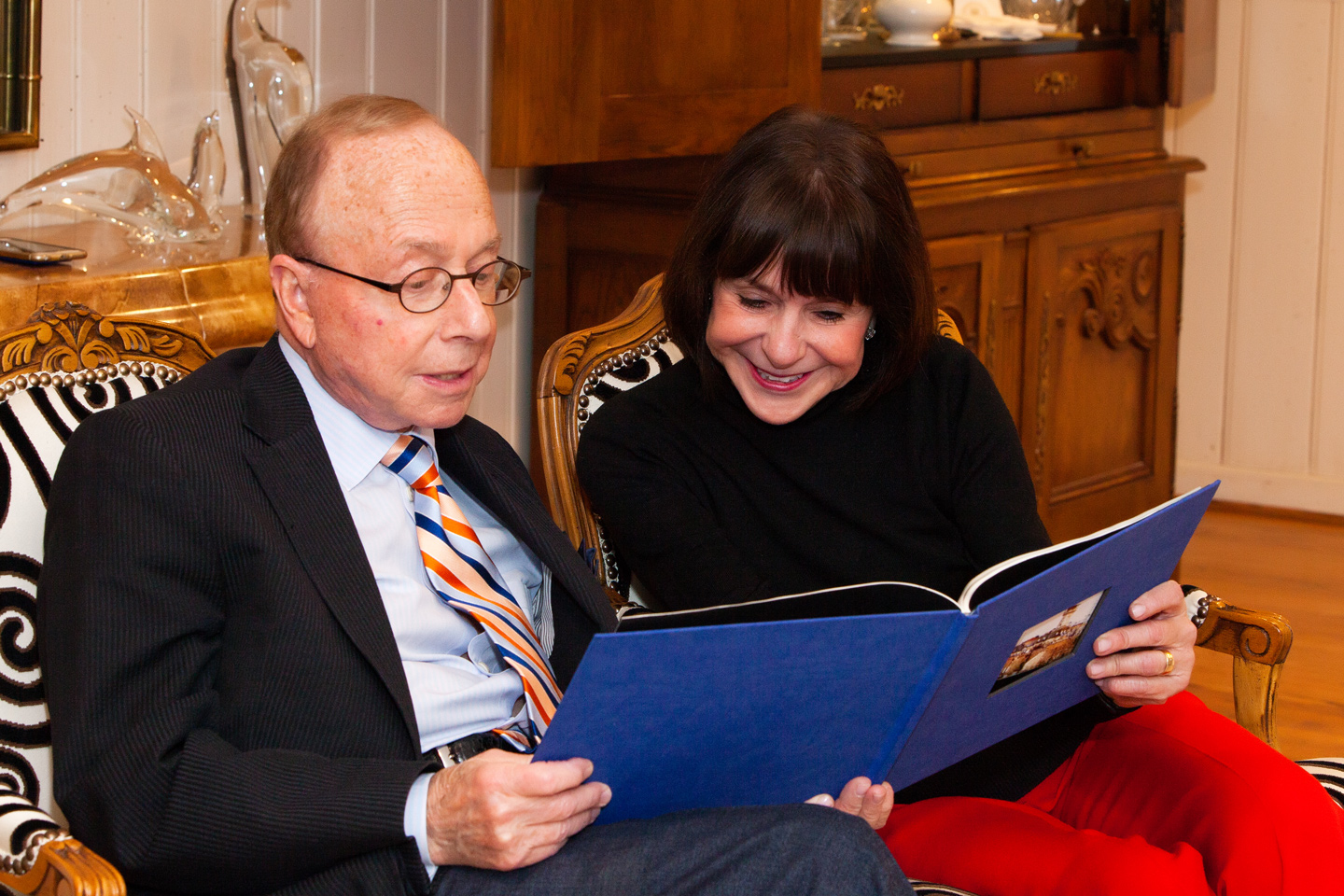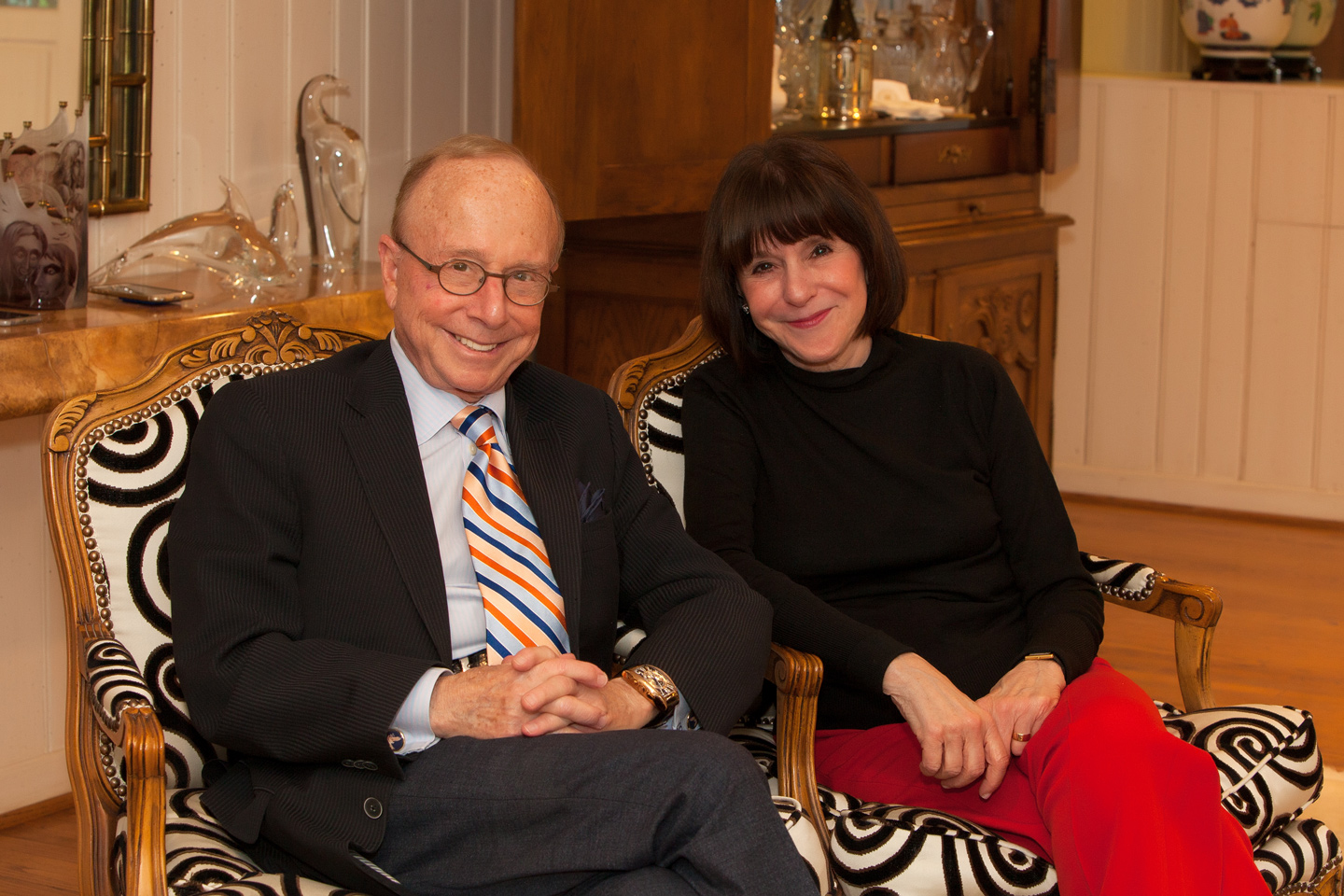Power Couple, Named JCRC Activist Awardees
By Vivian Henoch, Editor myJewishDetroit
May 1, 2016
Ask Dr. Conrad Giles when he and his wife, Dr. Lynda Giles, plan to “retire,” and emphatically he’ll tell you: “We have no intentions of retiring. I have a wife who is a clinical psychologist in private practice.” Conrad himself maintains his own busy practice in Pediatric Ophthalmology as the Chief Emeritus of Ophthalmology at Children’s Hospital of Michigan and as a Clinical Professor at the Wayne State University School of Medicine.
The very definition of activists, in their 38 years of marriage, the Giles have been true partners – champions of health, education and charitable causes – serving as leaders and community-builders with the Jewish Federation, a focal point of much of their work on both the local and national levels.

A past president of Federation, Conrad was recognized in 1993 as the recipient of the Fred M. Butzel Award for Outstanding Community Service. On the national stage, he has an equally long history of leadership and service to organizations including the Council of Jewish Federations (CJF), United Jewish Communities, American Joint Distribution Committee and the Jewish Agency for Israel. A former board member of JCRC, he has served as chair of the Jewish Council of Public Affairs. A deputy president of World ORT since 2013, Conrad is about to assume one of his most prestigious roles to date when he is named president of World ORT in May.
Lynda’s abiding passion for Jewish education, as well as her focus on young adults, has propelled her to take leadership roles fostering the growth of Federation’s educational services and programming. Following her role as president of Federation’s Agency for Jewish Education (AJE), she became the founding co-chair of the Alliance for Jewish Education. As a Federation Board Member, she has played pivotal roles in fundraising and other initiatives, including the 2005 Detroit Jewish Population Study. Today, aside from Federation, her focus is on the University of Michigan Hillel and supporting programming for Single Parent Families (SPARC).
Together, Lynda and Conrad have earned numerous accolades from the community, including The State of Israel Bonds Prime Minister’s Award and Yeshiva Beth Yehuda’s Golden Torah Award.
Drs. Lynda and Conrad Giles are named the recipients of the Jewish Community Relations Council’s 2016 Activist Award to be presented on Wednesday, June 8, 2016, at 7:00 pm, at Adat Shalom Synagogue in Farmington Hills.
myJewishDetroit: What does it mean to be an activist?
CONRAD: Simply stated: As a member of this community, you can make choices as to how you spend your time. You can either involve yourself in community in areas where you think you can bring something to the table, or you can participate in other ways.
The community always needs people who want to involve themselves directly in activities and we always need people who want to fund those activities. The choice is always open. Lynda and I have chosen to involve ourselves both in the gratifying work of Federation’s campaign and community activities.
LYNDA: The word activist is not what comes to mind when I think about myself. I do, however, feel fortunate to have the opportunity to volunteer in the Jewish community. Through volunteering, I have gained friendships, knowledge and awareness of communal needs and strengths. This has enriched me as a person and added to my life experiences.
myJD: Thinking back on your journey in community service, what projects have been nearest and dearest to your hearts?
C: No one project comes to mind, but I would say that we embraced Federation as first and foremost. The more each of us has given the more we’ve gotten in return. You’ll hear that from anybody who ever gets this award (Activist of the Year). You get so much more than you give, especially in this city. Detroit thinks it’s special. We know it’s special.
L: I think both of us have a tremendous amount of energy. Beyond our careers, we’ve loved the opportunities we’ve had in our roles within community. These activities never seemed like work to us because we derived pleasure and satisfaction from them.
Of all your achievements, what has made you the most proud?
C: My wife! When Lynda came into my life, I was well on the road to becoming the President of Federation. At that time, I was head of the professional health division. When we got married, I was privileged to introduce Lynda to this aspect of my life and to the Federation community. When you look at the kinds of initiatives she’s been involved with, for instance, the single Jewish parent activities, there is no question – my greatest accomplishment was involving my wife in Jewish community. Ours always has been an extraordinary partnership – sharing our work and community activities as a couple with the same sensibilities and priorities.
L: As much as Conrad is proud of me, I feel that way about him! He is amazing and so are his accomplishments. He has been asked to assume numerous leadership roles locally, nationally and internationally.
What do you see in Detroit that gives you the most hope?
L: It’s the sense that this community is revitalizing itself and attracting so many young people who will reenergize Detroit. I grew up in Detroit and living here always has been special. I loved the sense of community, neighborhoods and friendships. I want to see this continue. And now that young adults are staying and returning to the Detroit area, this is a real possibility.
C: When you look at the trajectory of Jewish Detroit in general, you have got to be impressed that while the general community has suffered incredibly over the last 35 – 40 years, Jewish Detroit always has thrived. I think it’s a testimony to the strength of the community — to the rootedness, as Lynda has described it.
People who have grown up here have a strong sense of belonging and there’s cohesion within the Jewish community that doesn’t exist in very many other communities. With the current boom that is occurring as a result of some very important Jewish leaders in this community, in Detroit you have to be optimistic about our future.
Is there community work or a project you still dream of starting?
C: Becoming president of World ORT in May . . . I believe is going to provide me with enough challenge for the rest of my life. It’s a four-year term. The offices are not around the corner — they are in the United Kingdom and 37 countries. We have activities as far afield as India. We are all around the globe. I think that this might be the most challenging and difficult job I’ve ever had with the possible exception of the time of the merger negotiations between UJA and CJF (Council of Jewish Federations). That’s history. This is going to be an interesting four years. I don’t plan on starting anything new.
L: The one thought that comes to mind is not that I have a dream of starting anything new but rather hopes of finishing what I have started. I would love to see the SPARC program feel secure in its funding so that Jewish single parent families can stay connected to Jewish institutions, their peers and the Jewish community. I would love our University of Michigan Hillel to have the funding it needs to continue to excel in fulfilling its mission: To enrich the lives of Jewish students so that they may enrich the Jewish people and the world.
What do you tell young people to encourage them to get involved in the community?
C: “I’ve been training young residents and fellows now for over a half a century — we’re talking about 500 young people who have come through my service in the medical center. I emphasize to each of them that what they are obtaining as becoming physicians is a trade — a marvelous trade. They feel good about what they are doing. The patients are praising them and it is possible to sense that they are giving back by doing their job.
But that’s not enough! They have something to give beyond using their trade as their sole contribution to society, and that’s something they should think about. Because you have been given this enormous privilege of being a physician, there’s still more that you can be doing.
L: My central message is that to be complete, we need to recognize our responsibilities not only to ourselves, but to our family and our community. As individuals, we do not live in isolation. This connection means that we need to give back or tzedakah. Being connected to community will only enrich one’s life.




